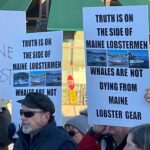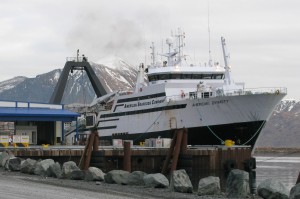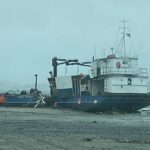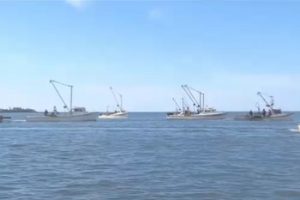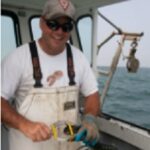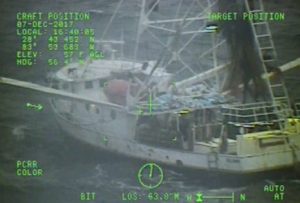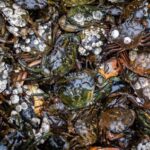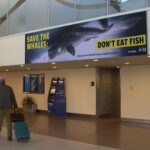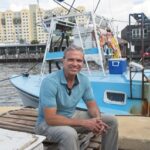Tag Archives: Mike Conroy
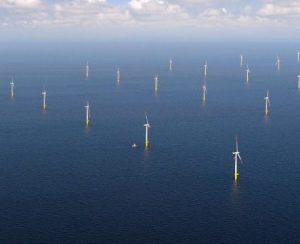
California: Can wind energy and fishing industry co-exist on the coast?
A statehouse hearing on offshore wind energy explored “The Future of Fisheries and Offshore Wind Energy in the Golden State” and fishing representatives said the scenario is unknown and they’re concerned. Fishermen are bracing for impacts to their livelihoods, as leases for five areas off the California coast, including two in Humboldt making up about half of $775 million plus in lease sales, have been federally-approved. Unavoidable impacts to fishing are expected so compensation for consequences like loss of fishing grounds will eventually be calculated. But fishing representatives said at this point the scale of the impacts can only be guessed and the leasing process hasn’t been inclusive enough. >click to read< 11:12
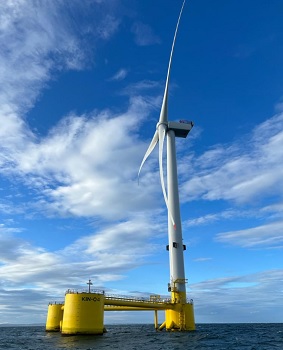
Panel discusses impact of offshore wind on West Coast fisheries
The Biden administration has called for deploying 30 gigawatts of offshore wind energy to combat climate change by 2030. Depending on where the turbines are placed, they could displace highly productive fishing grounds that account for billions of dollars and thousands of jobs in Oregon, Washington and California. Projects must be planned carefully using the best available science to mitigate potential damage, according to a panel of experts who spoke March 1 at the Northwest Offshore Wind Conference in downtown Portland. >click to read< 11:52
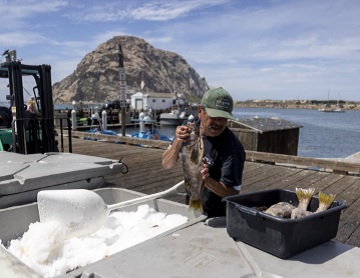
California Offshore Wind Projects Face Hurdles as Pressure Groups, Industry Interests Weigh In
As the Biden administration plans for the country’s first West Coast offshore wind turbines, interests ranging from commercial fishing fleets to powerful environmental groups are complicating the road ahead for the California projects. Some fishermen are worried about losing access to swaths of rich fishing grounds, where they would have to stop towing nets that could get caught on underwater cables. Lori Steele, executive director of the West Coast Seafood Processors Association, said offshore wind power projects threaten an industry that also must deal with depleted fish stocks and soaring coastal real-estate prices. “We’re struggling to make sure that people understand that, just because you can’t see it, that doesn’t mean it’s not having an impact,” she said. There is early discussion about creating fishing compensation funds, similar to ones created by East Coast projects for financial losses, “but the industry doesn’t want to be bought out,” she said. >click to read< 08:08
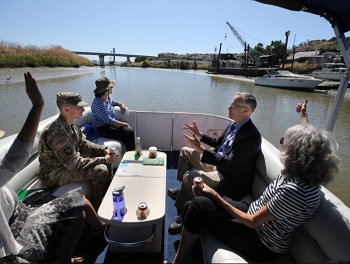
California poised to impose wave of boat emissions rules in 2022
Like users of lawn mowers and gas leaf blowers, working boat captains, excursion operators and fishermen will be asked told to get on board with new engine emissions regulations starting as early as 2022. The California Air Resources Board released its proposed emissions regulations on commercial boats in September. After hosting hundreds of meetings and receiving an opposing petition signed by thousands of sport fishers in California, the air quality agency expects to finalize the first in a montage of stricter guidelines to upgrade the boats by next spring. >click to read< 13:21
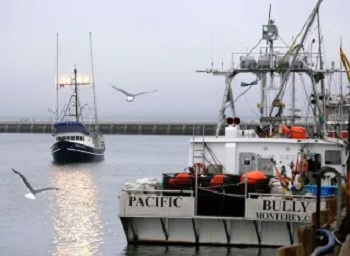
The Fishermen’s Climate Lawsuit Even the Fishermen Don’t Support
A surprising article has cast a spotlight on the discord in the Pacific Coast Federation of Fishermen’s Associations (PCFFA), a trade group of commercial fishermen and crabbers who filed a climate lawsuit three years ago. PCFFA members have soured on the case since it was filed and are speaking out about the hypocrisy of suing fossil fuel companies for producing the very products they rely on to power their fishing boats and question if litigation is the best way to address climate change. These comments are particularly noteworthy given how this case was launched in 2018. As EID Climate noted at the time, cozy ties between the leadership of the group and attorneys seemed to be the reason for the case. But as we see now, the group itself may not actually have been on board. >click to read< Toxic waters devastated Pacific Coast fisheries. But who’s to blame? – Union leaders say fossil fuel companies must pay for rising ocean temperatures. Not all boat captains are persuaded, >click to read< 10:30
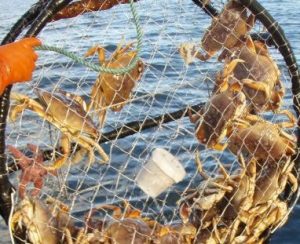
Dungeness crab season opens with extra restrictions as industry sees economic consequences
From Lopez Point in Southern Monterey County to Point Conception in Santa Barbara County, Dungeness crab catching is allowed right now using crab traps, hoop nets and snares, potentially bringing in a boost to the Central Coast economy during the holidays. But due to whale activity, take using crab traps is temporarily restricted in Fishing Zones two and three from the Sonoma/Mendocino county line to Lopez Point. Mike Conroy is the executive director of the Pacific Coast Federation of Fishermen’s Association. He said historically, the opening of Dungeness crab season would mean big business for fisheries across California. >click to read< 10:02
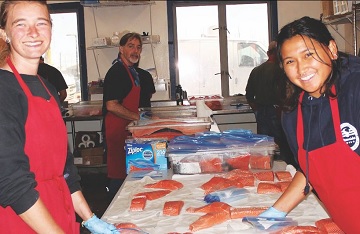
As Salmon and Squid Seasons Rebound, New Questions
Over the last few months, hundreds of boats have been fishing off of, or transiting along Santa Cruz County’s coastline. Industry analysts report plenty of bright spots in both the salmon and squid markets this season. But after some scientific studies were scuttled last year because of the coronavirus pandemic, and other research couldn’t be completed due to wildfires, fisheries management is still undergoing its own pandemic comeback, as climate change fears remain ever-present. “It’s definitely been a good season,” Scotts Valley resident Hans Haveman, the CEO of H&H Fresh Fish at the Santa Cruz Harbor says during a late-June interview. “Unfortunately, regulation from the state and feds have shut us down right when it’s goin’ good.” video, >click to read< 08:50
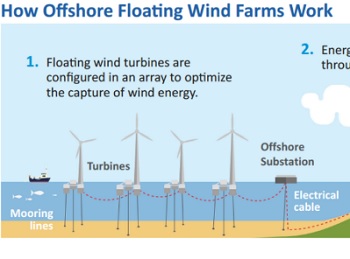
Biden opens (condemns) California coast to floating offshore wind turbines – “We believe it’s shortsighted,”
The announcement, endorsed by Gov. Gavin Newsom, moves forward the prospect for wind farms in two areas about 20 miles off the coast of Morro Bay and Humboldt County. Turbines roughly 600 to 700 feet tall would be built on floating platforms because the water is too deep to anchor them to the sea floor. “We believe it’s shortsighted,” said Mike Conroy, executive director of the Pacific Coast Federation of Fishermen’s Associations, “Floating offshore wind technology is unproven. It hasn’t been deployed on a large industrial scale yet. We have no idea what the environmental impacts will be off our coast.” >click to read< 13:16
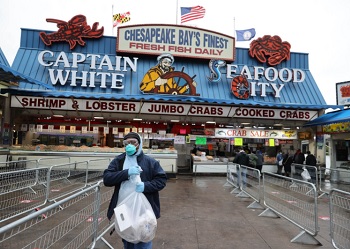
The Coronavirus pandemic could change U.S. fisheries forever. Will it be for better or for worse?!
The first symptoms appeared long before Covid-19 gained a stronghold on U.S. shores, as China went into its first lockdown and a critical export market disappeared overnight,,, Then as social distancing rules kicked in here, another major organ of the U.S. supply chain, restaurants, where most seafood purchases are made, fell limp. Many fishermen across the country have pivoted to direct-marketing models by selling their catch off their boats,,, To many in the food industry, the pandemic’s impact has exposed the fundamental vulnerabilities of a system that has long favored efficiency over resilience. >click to read< 09:48
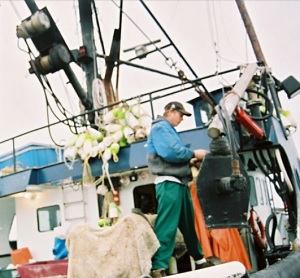
California’s fish population rebounds thanks to strict fishing rules
Among the West Coast’s shrinking fish populations 30 years ago, the largely bottom-dwelling groundfish species were particularly hard hit by overfishing and were declared a federal economic disaster. That spurred one of the world’s most aggressive fishery management programs, with an approach that includes science- and data-driven catch limits and no-fishing zones. Of 17 global regions with ocean fishery management programs examined in a new study by the University of Washington, the west coasts of the United States and Canada had the strictest approaches. >click to read< 09:16
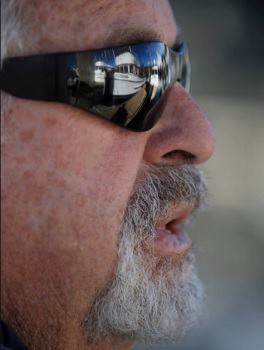
California: Don’t expect Dungeness Crab for Christmas this year
“Unless a miracle happens, which is highly unlikely, we won’t see crab for Christmas,” said Tony Anello, a veteran fisher who runs his boat, the Annabelle, out of Bodega Bay and offers up his tender product at Spud Point Crab Co. After several years of varied setbacks and more than a month of delays to the 2020 Dungeness season, local crabbers now face a new hurdle as they haggle over price with large wholesalers. “We should be traveling right now,” Dick Ogg,,, wholesalers are asking skippers to cut their prices by 30% to 35%, leaving both sides approximately $1 a pound apart from an agreement that would start the crab season. >click to read< 08:05
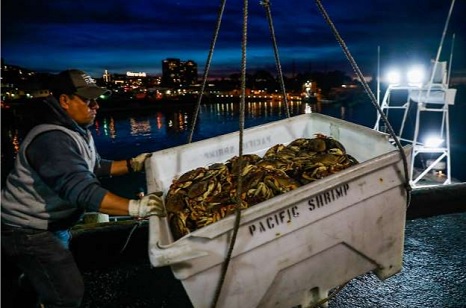
Dungeness crab season might not open for Thanksgiving again
New state regulations may mean that Dungeness crabs won’t be in stores in time for Thanksgiving. The rules, aimed at preventing entanglements “I want to make sure it’s understood what kind of effort we’re putting into it as fishermen and how effective we’ve been,” said Dick Ogg, a Bodega Bay fisherman and a member of the California Dungeness Crab Fishing Gear Working Group that developed the rules. He said that fishermen have worked hard to make sure their gear is set up better to lower risk. “We’ve really reduced our interaction and entanglement rates.” Ogg said there is a lot of anxiety in the fishing fleet about what will happen with the coming season and whether they should start gearing up for a Nov. 15 opening or whether it will be delayed. >click to read< 10:01
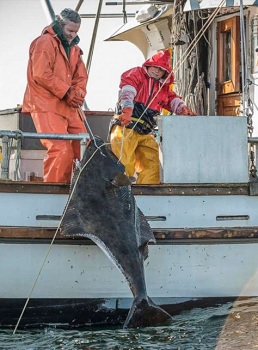
Fishermen, farmers suffering from food supply disruptions concerned for what’s to come
As the coronavirus has spread through the U.S. over the last two months, it has dealt a significant blow to the country’s food supply chain and driven the price of products down so much that those who source them aren’t sure if they’ll get a return on the time and money they’ve invested over the last year. Many are now concerned about what the rest of the year will look like and what it means for the foods they grow. For some fishermen, however, the risk of losing money is too high. California’s commercial salmon season began on Friday, but Mike Conroy, executive director of the Pacific Coast Federation of Fishermen’s Associations, says that with the markets “upended” and 75% of California salmon purchased by restaurants, many fishermen might not go through the trouble of fishing. >click to read< 09:16
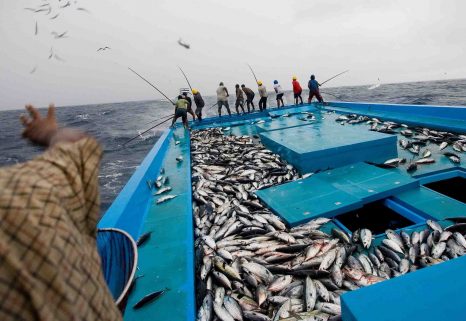
In the Maldives, the Virtues and Limitations of Pole-and-Line Tuna Fishing – can it catch on globally?
Kelsey Miller, fisheries researcher with a global advocacy group, wobbled for balance on a 50-foot fishing boat as silvery tuna flew through the air towards her. It was 2014, and as the vessel pitched off the coast of the Maldives, a collection of atolls several hundred miles southwest of the southern tip of India, a dozen or so fishermen working in the stern pulled the fish from the water one by one with fishing poles, flipping their catch towards the boat’s bow. >click here to read< 16:22 
The “Redheaded Stepchild of Fishing” – Controversial drift-gill net fishery wins long-fought battle
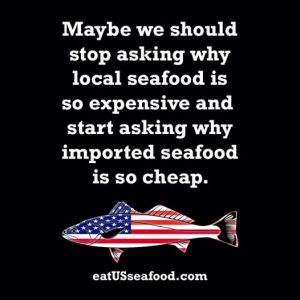 Federal fishery managers denied a proposal this week to immediately shut down Southern California’s most controversial fishery in the event that wide-mesh gill nets accidentally kill a handful of certain marine mammals or sea turtle species. The swordfish and thresher shark fishery will remain open, even if it kills several whales or sea turtles, the NOAA’s National Marine Fisheries decided. The decision not to institute so-called hard caps on the fishery comes after a public review period initiated last year was extended to discuss the law proposed by the state’s Pacific Fishery Management Council in 2014. For the few dozen fishers who still catch swordfish and thresher sharks off Southern California in deep-water drift gill nets, the decision brought a big sigh of relief. click here to read the story 08:38
Federal fishery managers denied a proposal this week to immediately shut down Southern California’s most controversial fishery in the event that wide-mesh gill nets accidentally kill a handful of certain marine mammals or sea turtle species. The swordfish and thresher shark fishery will remain open, even if it kills several whales or sea turtles, the NOAA’s National Marine Fisheries decided. The decision not to institute so-called hard caps on the fishery comes after a public review period initiated last year was extended to discuss the law proposed by the state’s Pacific Fishery Management Council in 2014. For the few dozen fishers who still catch swordfish and thresher sharks off Southern California in deep-water drift gill nets, the decision brought a big sigh of relief. click here to read the story 08:38
Squid fishermen fight overblown – Mike Conroy, President, West Coast Fisheries Consultants.
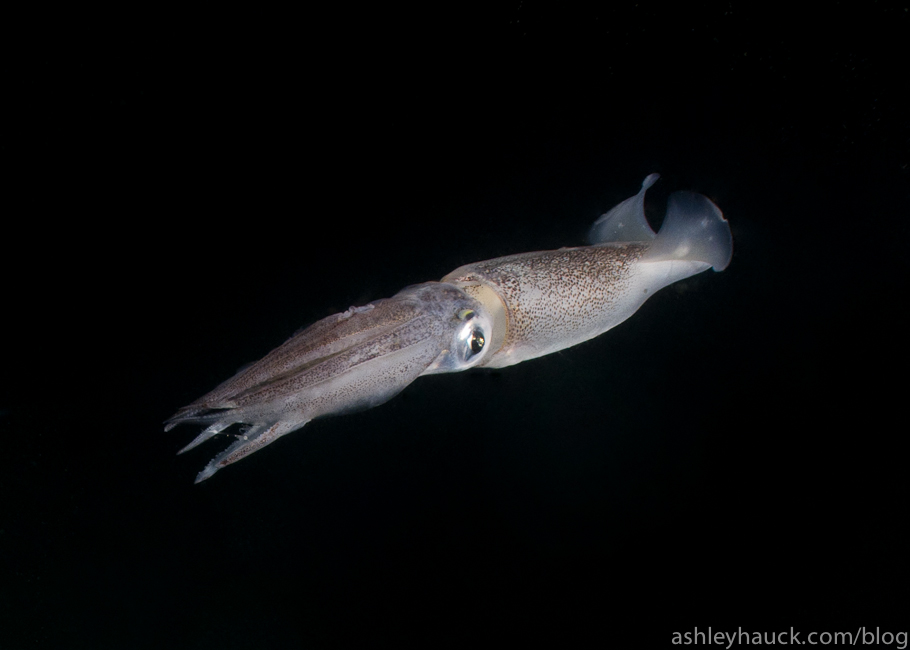 Hearing claims of three squid brail (smaller boat) fishermen, one might think that the larger seine vessel squid fishermen are illegally catching all of the allowable quota. continued
Hearing claims of three squid brail (smaller boat) fishermen, one might think that the larger seine vessel squid fishermen are illegally catching all of the allowable quota. continued

































